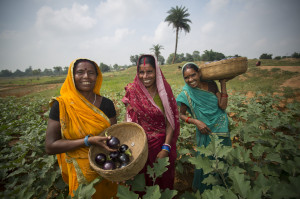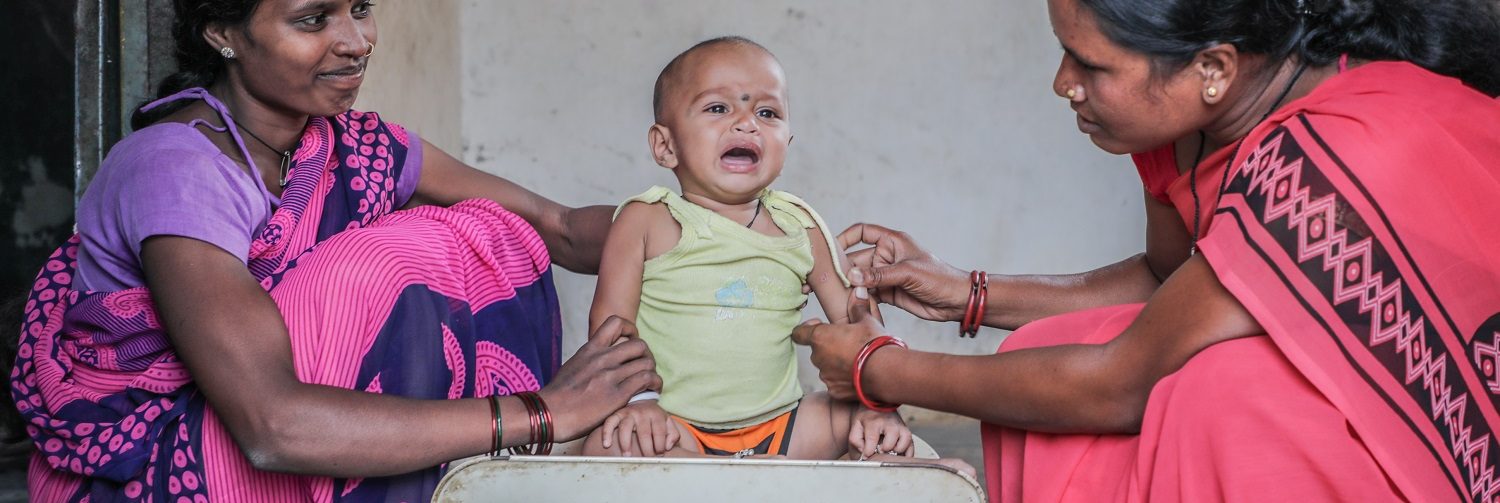Source: DG's Corner.

Indian women harvesting eggplants (Source: USAID/LWR/Jake Lyell)
These achievements are remarkable, but complacency must be avoided. Though India’s GHI score is no longer in the “alarming” category, it is still “serious.” At present, 40 percent of children are stunted (although declining with variation across states, economic quintiles, and marginalized social groups); 30 percent of Indian women are underweight; and rates of micronutrient deficiencies are still high. In fact, anemia in pregnant women has increased in several states between 2005 and 2013.
Research tells us that micronutrient deficiencies cost India more than 2.5 percent of its GDP, and that investments in reducing undernutrition have high payoffs; every $1 spent on reducing child stunting in India generates $34 in returns.
In our increasingly interconnected world, addressing nutrition requires integrated approaches. Recently, I gave a keynote address at the Together for Nutrition (T4N) 2014 Conference in New Delhi, which brought together experts from various sectors to discuss how to advance nutrition through multisectoral and intersectoral collaboration in India. The conference was organized by two IFPRI-led programs: Partnerships and Opportunities to Strengthen and Harmonize Actions for Nutrition in India (POSHAN) and Transform Nutrition.
My talk focused on key actions needed to prioritize and improve nutrition in India while leveraging multisectoral approaches: implementing nutrition-specific interventions (e.g. fortification; breastfeeding and complementary feeding; dietary diversification) together with nutrition-sensitive programs (e.g. biofortification; better-targeted, productive, and cross-sectoral safety nets; quality sanitation and healthcare; women and girls empowerment). In particular, leveraging agriculture for better nutrition outcomes is critical to accelerate progress.
The current political momentum in India to raise the profile of nutrition by ensuring strong leadership and commitment at all levels and across multiple sectors shows great promise. IFPRI is committed to supporting these efforts by contributing to the evidence base for policy action.
Written by: Shenggen Fan, IFPRI

